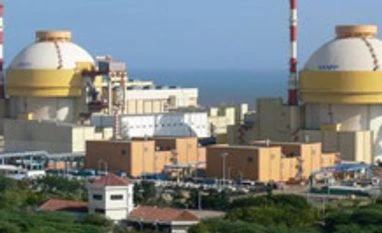The awareness programme includes site visits by students, lectures in villages and sport events.
NPCIL’s move comes at a time when the Atomic Energy Regulatory Board (AERB) is reviewing the plant’s first approach to criticality.
The project site director, R S Sundar, hopes the first phase of 1,000-Mw will go critical by May-end. After that, it will need 25 more days to start power generation.
“In April, 1,560 school and college students and staff visited the Kudankulam project, where NPCIL distributed 3,080 publications. But, during the outreach programme, 2,100 persons were contacted and 2,200 publications distributed," an official told Business Standard.
NPCIL has booking of visitors for a couple of more months, the official added.
R K Sinha, chairman of Atomic Energy Commission (AEC), said: “I am aware a great deal of work needs to be done to bring this message of how nuclear power is safe and essential to the nation to all the sections of our citizens, specially those who have expressed apprehensions in this regard. We have been trying our best, but we will now make the best use of different kinds of media to extend our reach.”
He said it was important to communicate the great advantages of atomic energy in various fields other than nuclear power, such as agriculture, health care, industry, drinking water, environment protection, scientific research and education.
DON’T BE AFRAID OF NUKES
- Awareness programme includes site visits by students, lectures in villages and sport events
- Many have booked visits to site
- First phase of 1,000-Mw to go critical by May-end
)